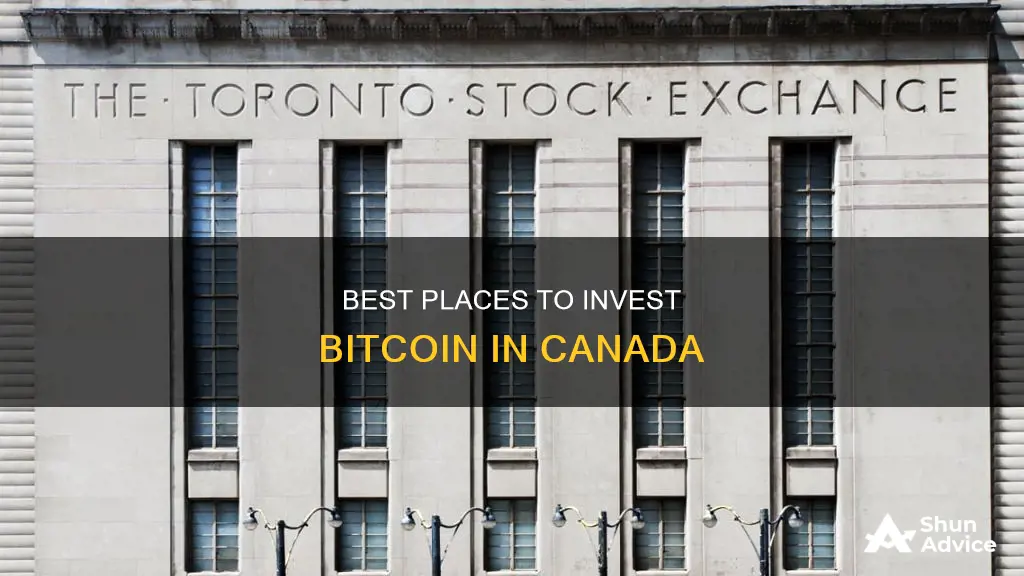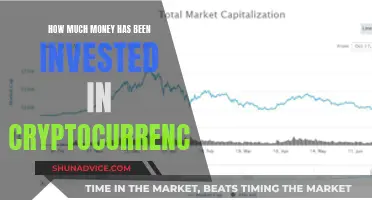
Bitcoin is a cryptocurrency that was created in 2009 by Satoshi Nakamoto. It is a decentralised digital currency that exists in electronic form, with no physical version for Bitcoin holders to possess. Bitcoin transactions are highly secure and can’t be easily shut down by governments.
Canada has embraced Bitcoin, and there are several ways to buy and sell Bitcoin in the country. These include via Bitcoin exchanges, through CFD brokers, or through ATM’s.
When buying Bitcoin, it is important to be aware of the risks. Bitcoin is a volatile asset and its value can fluctuate significantly. There are also security risks, and it is important to take precautions to protect your investment from hackers.
1. Decide where to purchase Bitcoin. You can use a cryptocurrency exchange, a traditional broker, a Bitcoin ATM, or a peer-to-peer exchange.
2. Set up and fund your account. You will need to verify your identity and connect a payment method.
3. Decide where to store your Bitcoin. You can store it on a cryptocurrency exchange or transfer it to a hot or cold wallet.
4. Buy your Bitcoins. Choose the type of cryptocurrency you want to buy, enter the amount, select your payment method, and confirm your order.
What You'll Learn

Bitcoin ATMs in Canada
Bitcoin ATMs are not linked to traditional bank networks but are instead connected to the internet. They are designed to facilitate the buying and selling of Bitcoin and other cryptocurrencies. The first Bitcoin ATM was opened in a Vancouver coffee shop in 2013. Since then, the number of Bitcoin ATMs in Canada has grown significantly, with approximately 2528 machines across the country as of 2024. The largest number of these are found in Calgary, Montreal, Toronto, and Vancouver.
Bitcoin ATMs offer a high degree of anonymity to users, which is a key characteristic of Bitcoin. However, this comes at a cost, with transaction fees tending to be high and limits on transaction sizes being lower than those on Bitcoin exchanges.
There are two main types of Bitcoin ATMs: basic machines that only allow users to purchase Bitcoin, and more complex machines that enable users to both buy and sell the cryptocurrency. In the case of the latter, only members of the particular ATM producer can use the machine. As of 2020, the main manufacturers of Bitcoin ATMs were Genesis Coin and General Bytes.
To use a Bitcoin ATM, users typically need to verify their identity and phone number, and may also need to provide additional ID for larger transactions. They then scan a QR code to access their digital wallet, insert cash into the machine, and receive Bitcoin in their wallet.
The Future of Bitcoin: Why Companies are Investing
You may want to see also

Bitcoin exchanges in Canada
Canada has embraced Bitcoin, and there are several ways to buy and sell it.
There are several Bitcoin exchanges that provide their services in Canada, including:
- CEX.IO: A leading and reliable Bitcoin exchange with a low trading fee of 0.2%. It allows customers to buy Bitcoins with credit cards, bank transfers, SEPA transfers, cash, or AstroPay.
- Coinbase: Supports 32 countries with over 10 million customers. Canadian customers can buy using credit and debit cards, with fees of 3.99% for purchases.
- Coinmama: For purchases under $150, no identity verification is required, but there is a transaction fee of around 6% for credit or debit card purchases.
- GDAX: One of the larger US Bitcoin exchanges, with competitive fees.
- Canadian Bitcoins: Customers can select from a wide range of funding options, including Interac Online, online banking, direct debit from a bank account, cash via mail, or in person.
- Satoshi Counter: Customers can buy face-to-face in Montreal and online elsewhere in Canada. The exchange permits Bitcoin transactions of up to $1 million, but additional identity verification is required for larger transactions.
- QuickBT: A Canadian broker that sells small amounts of Bitcoin ($200 cap) via Interac Online, Flexepin vouchers, or debit card.
- Kraken: A well-known exchange with over 9 million users globally. It offers low fees, unique features like staking, and supports Interac e-Transfers for Canadian dollar deposits and withdrawals.
- Bitbuy: A cryptocurrency exchange based in Canada. Bitcoins, Litecoin, Ethereum, and other coins can be bought with Interac e-Transfer or bank wire for as low as 0.1% fees.
- Uphold: A global exchange supporting residents of Canada. Uphold offers a free wallet and is registered with the Financial Transactions and Reports Analysis Centre of Canada.
- MyBTC: Exclusively Canadian cryptocurrency exchange, operating since 2016. It supports various payment methods, including Interac e-Transfer, credit and debit cards, bank wire transfers, cash, and Flexepin vouchers.
Bitcoin ATMs
Another way to buy Bitcoin in Canada is through Bitcoin ATMs, which can be found in major cities like Toronto, Vancouver, and Calgary. These ATMs provide a high degree of anonymity but often have high transaction fees and lower limits on transaction sizes.
Who's Investing in Bitcoin? A Look at Ownership Statistics
You may want to see also

How to buy Bitcoin safely
Step 1: Decide where to buy Bitcoin
You have several options when it comes to buying Bitcoin:
- Cryptocurrency exchanges
- Traditional brokers
- Bitcoin ATMs
- Peer-to-peer exchanges
As a beginner, it is recommended to stick with well-known cryptocurrency exchanges such as Coinbase, Kraken, and Gemini. These platforms offer more convenience and security than the other options, and you can buy Bitcoin with Canadian dollars.
Step 2: Set up and fund your account
Each exchange will have its own sign-up process, which usually involves verifying your identity. Be prepared to provide copies of your driver's license, social security card, and documentation confirming your address.
After passing the verification process, connect your payment method and fund your account. This can be done via bank transfers, debit/credit cards, wire transfers, and sometimes even PayPal. Different exchanges charge varying fees based on the payment method, so do your research.
Step 3: Decide where to store your Bitcoin
While you can store your Bitcoins on the exchange itself, this is not recommended as your funds could be at risk in the event of a hack. For better security, you should use a digital wallet.
There are two types of wallets: hot wallets and cold wallets. Hot wallets run directly on your smartphone, tablet, or computer, and are convenient for active trading. However, they are also more vulnerable to hacking. Cold wallets, or hardware wallets, are physical devices that store your private keys offline, providing better protection from hackers.
Step 4: Buy your Bitcoins
The purchase process will vary slightly depending on the exchange, but typically involves choosing the type of cryptocurrency, entering the amount you want to buy, selecting your payment method, and confirming your order.
Safety Tips:
- Don't invest money you can't afford to lose.
- Understand the process and do your own research before investing.
- Keep your funds secure with a strong password, two-factor authentication, and a hard wallet.
- Track everything you do, as you must pay taxes on cryptocurrency-related income.
Why You Should Consider Investing in Bitcoin Cash
You may want to see also

Bitcoin wallets
Firstly, it is important to note that Bitcoin wallets do not actually store your Bitcoin. Instead, they store your private and public keys, which are needed to send and receive Bitcoin. Anyone who knows your private key can access your Bitcoin, so it is important to keep this information secure.
When creating a Bitcoin wallet, a seed phrase will be generated. This is typically a 12- or 24-word list that can be used to restore your wallet if it is lost. It is important to keep this seed phrase secure, as anyone who has access to it can steal your funds.
There are two main types of Bitcoin wallets: custodial and non-custodial. Custodial wallets are hosted by a third party that stores your keys for you, such as a cryptocurrency exchange. Non-custodial wallets, on the other hand, are wallets in which you take responsibility for securing your own keys.
There are also two types of Bitcoin wallets depending on their connection to the internet: hot wallets and cold wallets. Hot wallets are connected to the internet, while cold wallets are offline and considered more secure.
- Hot Wallets:
- Desktop wallets: These wallets store your private keys on your computer hard drive and are typically free and easy to use. Examples include BitPay, Exodus, and Electrum.
- Web wallets: These are provided by a third party, such as a crypto exchange, and allow you to access your holdings using a web browser. Examples include Coinbase, Metamask, and Guarda.
- Mobile wallets: These wallets allow you to send or receive cryptocurrency on the go, using your mobile phone. Examples include BitPay, Edge, Trust, Electrum, and Blockchain.com.
- Cold Wallets:
- Paper wallets: This is a low-tech solution where private keys are written down or printed and stored offline. While paper wallets are secure, they can be easily lost or destroyed.
- Hardware wallets: These are physical devices, often resembling a USB thumb drive, that store your private keys offline. Examples include Ledger Nano S, Trezor Model One, and Ledger Nano X.
When choosing a Bitcoin wallet, it is important to consider your priorities, such as ease of use, security, and accessibility. It is also advantageous to use multiple wallets for different purposes, such as a hardware wallet for saving and a mobile wallet for regular spending.
UK Bitcoin Investment: How Much Should You Invest?
You may want to see also

Tax implications of Bitcoin in Canada
The Canada Revenue Agency (CRA) treats cryptocurrency as a commodity, subject to capital gains tax and income tax. 50% of capital gains and 100% of income from cryptocurrency are taxable.
Capital Gains Tax
Typically, cryptocurrency dispositions are subject to capital gains tax. This includes selling or gifting cryptocurrency, trading it for another cryptocurrency, or using it to make a purchase. Only 50% of your capital gains are considered taxable income.
Income Tax
Earning cryptocurrency is subject to income tax. Examples include earning staking income, receiving crypto as compensation for your work, and earning income from an NFT that you created. If you are categorised as a trader by the CRA, all your profits from cryptocurrency will be considered income. 100% of income from cryptocurrency and other sources is considered taxable.
Tax-Free Transactions
There are a few examples of cryptocurrency transactions that are considered tax-free in Canada. These include holding cryptocurrency, transferring it between wallets, buying it with fiat currency, and buying NFTs with fiat currency.
Record-Keeping
The CRA recommends keeping records of the following information:
- The date of each crypto transaction
- The fair market value of each asset upon receipt and disposal
- The amount of tokens bought, sold, or traded
- Cryptocurrency addresses and wallet information
- Addresses of other parties traded with
- Accounting and legal fees
- Exchange records
Exploring Bitcoin: Underage Investing and Opportunities
You may want to see also
Frequently asked questions
You can buy Bitcoin in Canada through a cryptocurrency exchange, a traditional broker, a Bitcoin ATM, or a peer-to-peer exchange.
Some popular cryptocurrency exchanges in Canada include Bitbuy, Coinbase, Kraken, and MyBTC.
Cryptocurrency exchanges offer more convenience and security than other options. They also allow you to buy Bitcoin with Canadian dollars, which can help you avoid high exchange fees.
To set up an account, you typically need to provide personal information such as your name, email address, and phone number. You may also need to verify your identity by providing a copy of your driver's license or passport.
You can typically fund your account using a bank transfer, credit card, debit card, or another cryptocurrency. Different exchanges offer different payment methods, so be sure to check which methods are available on the exchange you choose.
The fees vary depending on the exchange and payment method you choose. For example, credit card deposits may incur higher fees than bank transfers. Be sure to research the fees for the specific exchange and payment method you plan to use.







